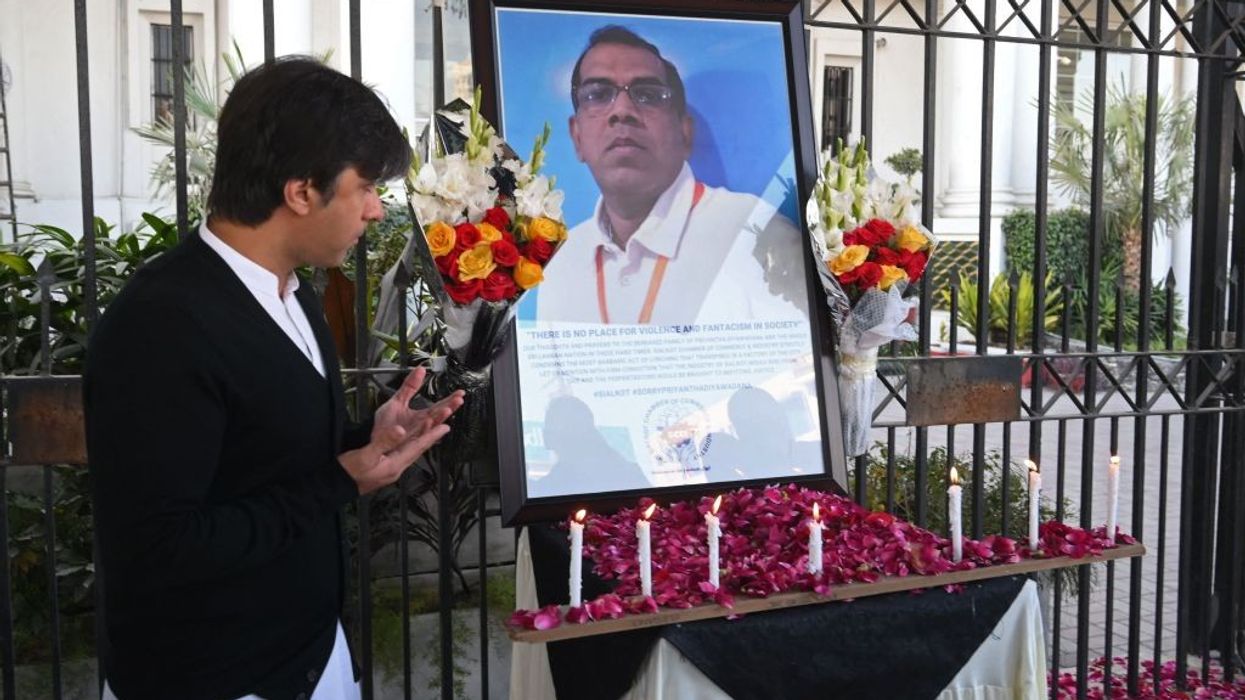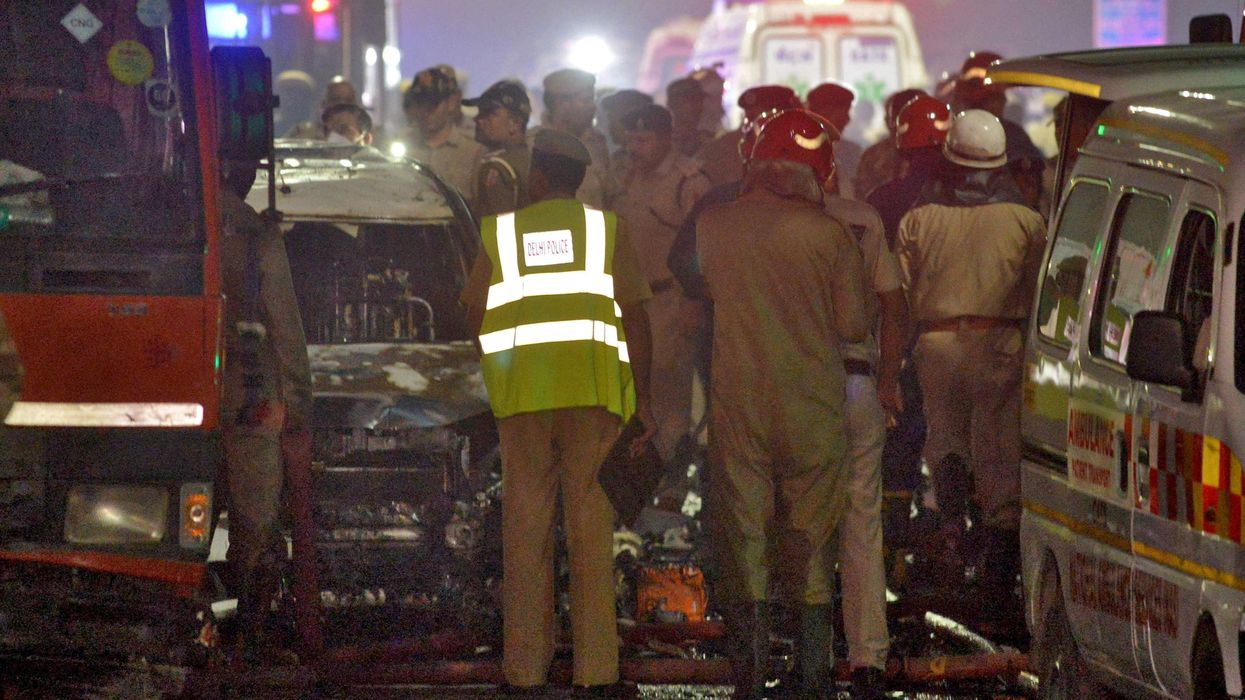THE BODY of a Sri Lankan national, who was lynched by a mob in Pakistan's Punjab province over allegations of blasphemy, was flown to Colombo on Monday (6).
The wooden coffin has the words ‘Human remains of late Don Nandasri P Kumara Diyawadanage. From Lahore to Colombo,’ transcribed on it.
A mob of more than 800 men, including supporters of Islamist party Tehreek-e-Labbaik Pakistan (TLP), attacked a garment factory and lynched its general manager Priyantha Kumara Diyawadanage and set him on fire on Friday (3) over allegations of blasphemy in Sialkot district, some 100 km from Lahore.
"Officials of the Sri Lanka high commission arrived here early Monday morning and the body was handed over to them at the Lahore airport by Punjab minorities minister Ijaz Alam. The body was transported on a Sri Lankan Airlines flight," a Punjab government official said.
Punjab police claimed to have arrested seven more prime suspects allegedly involved in the lynching of Diyawadanage, 49.
“A total of 131 suspects, including 26 main ones, have been arrested so far. The 26 prime suspects have played a key role in inciting the people, lynching Kumara and setting his body ablaze,” the Punjab police said in a tweet.
Some 15 prime suspects were presented before the Anti-Terrorism Court in Gujranwala where they were remanded in police custody for 15 days.
According to police, after killing Diyawadanage, the mob also wanted to kill the factory owner and set the building on fire.
“The mob wanted to set on fire the entire factory after lynching Kumara. A group of charged workers headed towards the residence of the factory owner to kill him, but timely action by police prevented further violence,” Sialkot district police officer Omar Saeed said.
Earlier, narrating the sequence of the incident, inspector general police (Punjab) Rao Sardar Ali Khan had said: “A mob of more than 800 men gathered and attacked the factory at 10 am Friday after reports emerged that Kumara had torn a sticker/poster inscribed with Islamic verses and committed blasphemy. They searched for him and found him on the rooftop. They dragged him, beat him severely and by 11.28 am, he was dead and the body was set on fire by the violent mob.”
Diyawadanage was working as the general manager in Rajko industries, which deals in sportswear, for the last seven years.
The incident sparked outrage across Pakistan with all sections of the society condemning it and calling for the culprits to be punished.
Prime minister Imran Khan on Sunday (5) announced Tamgha-i-Shujaat (civil award for bravery) for the victim's colleague, Malik Adnan, who tried to rescue him from the mob.
“On behalf of the nation, I want to salute (the) moral courage & bravery of Malik Adnan who tried his utmost to shelter & save Priyantha Diyawadana from the vigilante mob in Sialkot incl endangering his own life by physically trying to shield (the) victim. We will award him Tamgha i Shujaat,” Khan tweeted.
CCTV footage showed production manager Adnan, confronting the group of angry men all by himself and making desperate attempts to avert the flare-up and then trying to shield Diyawadanage from the mob.
The mob later overpowered Adnan and dragged Diyawadanage out on the road and tortured him with kicks, stones and iron rods, killing him on the spot. The mob had then set the body on fire.
According to the post-mortem report, nearly all bones of Diyawadanage were broken and his body was 99 per cent burnt.
Diyawadanage had gone to Pakistan in 2011 after he got a job as a mechanical engineer at an apparel factory in Faisalabad. After a year, he joined Sialkot's Rajco Industries as its general manager and was the only Sri Lankan national working in the factory.
He is survived by his wife and two sons aged 14 and 9.
(PTI)













